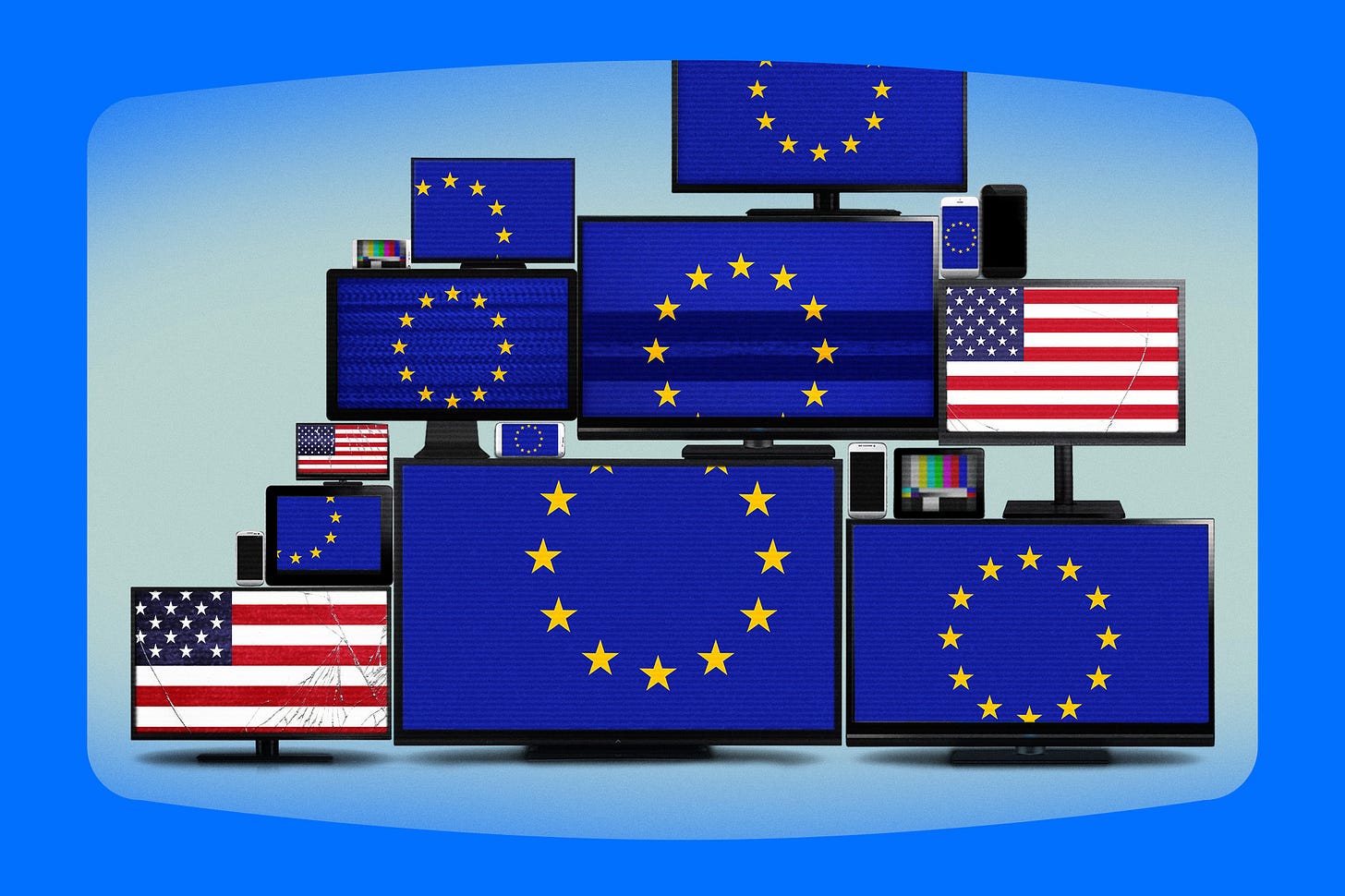'Freeloading' No More: European TV Alliances Snub the U.S.
Amid streamer pullback and geopolitical tension, cross-border EU partnerships are co-funding and co-producing hits on their own

Manori Ravindran writes about int’l TV from London. She recently reported on a debate over credits for unscripted shows in the U.K. and the surge in Japanese co-productions.
Bonjour, Series Business readers. How I find myself in France at least three times a year for television conferences is beyond me, but here I am, reporting live from Lille.
I’m at the French drama festival Series Mania, which began in 2010 as a small Paris-based conference for 250 people and has grown into a 4,500-strong industry event in northern France covering the development of scripted TV shows in Europe. It’s a little more corporate than it used to be, and there aren’t as many executives dishing candid insights as we used to see (a typical trajectory for successful conferences). Even so, the energy has felt upbeat.
The Europeans are out here hustling. They’re not sitting around bemoaning the industry downturn or reminiscing about the good old days for their businesses. They’re finding ways of getting shows made on constrained budgets — as they’ve always done. London-headquartered research firm Ampere Analysis revealed in Lille that nearly 50 percent of first-run scripted shows in Europe originate from public broadcasters, which provide a “stable base” that the industry can turn to “in times of hardship” when commercial broadcasters and streamers have pulled back.
There’s a lot of energy behind European projects, partnerships, incentives and stories — though this continental pride does come with a side of increasing skepticism about the American industry, inevitably intensified by the European view of the U.S. political landscape. No one’s saying that there won’t be increased collaboration between the two regions in the future, but the overriding feeling out of Series Mania is that Europe is stronger together, and just as America is trying to strengthen the industry within its own borders, so too is Europe.
This week, I’m highlighting one of the key ways European broadcasters are winning: by partnering up to co-finance programming. (This may be a good time to bone up on my guide to the co-production model.) As I’ve previously reported, co-productions have been the norm in Europe for more than a decade. But what broadcasters started doing as early as 2018 — when the threat of global streamers and their local originals began to loom large — is creating border-crossing alliances to co-fund and co-produce content that’s then shared between all partners.
Not all countries buy into the model: Spain, for example, is such a strong market that it can sustain itself. But for many nations, these scripted networks are an effective way of zhuzhing their content slates at affordable prices.
There are currently at least four major scripted alliances in place for continental Europe: the stalwarts of The Alliance and Nordic Twelve and the more recent entrants of the Scandi Alliance and New8. Sometimes these groups even collaborate to fund shows, such as the buzzy Kabul, about American troops’ 2021 exit from Afghanistan, which saw The Alliance teaming up with New8, resulting in a co-production between — deep breath — 11 countries. (Yes, all of them had oversight at script stage.)
It’s a fascinating model that is, in some ways, very specific to the rich tapestry of nations and cultures that comprise Europe but could conceivably be applied to other regions around the world, such as Latin America, Southeast Asia or maybe even — if we dare to dream of a day beyond Donald Trump’s administration — the U.S. and Canada. There might even be ways for different U.S. states or territories — different regions with complementary landscapes, industry resources and/or tax incentives, say — to collaborate on production deals.
In today’s newsletter, I dig into the European partnerships that are threading the needle to create prestige content that can compete with shows from deep-pocketed U.S. streamers. You’ll learn:
The per-hour budgets for dramas in these pan-European consortiums
How these alliances aren’t reliant on American financing or partners
The one must for a show to be produced by one of these partnerships
The differences between Europe’s four separate drama alliances
How Kabul, originally a French series, was reconceived to become a more pan-European show
Why even U.K. producers are looking to continental Europe to get shows made — but may be left in the cold
How to make a commissioning partnership work creatively and financially
The possibility for Americans to join a European production alliance
This column is for paid subscribers only. Interested in a group sub for your team or company? Click here.
For full access and to continue reading all Ankler content, paid subscribers can click here.



